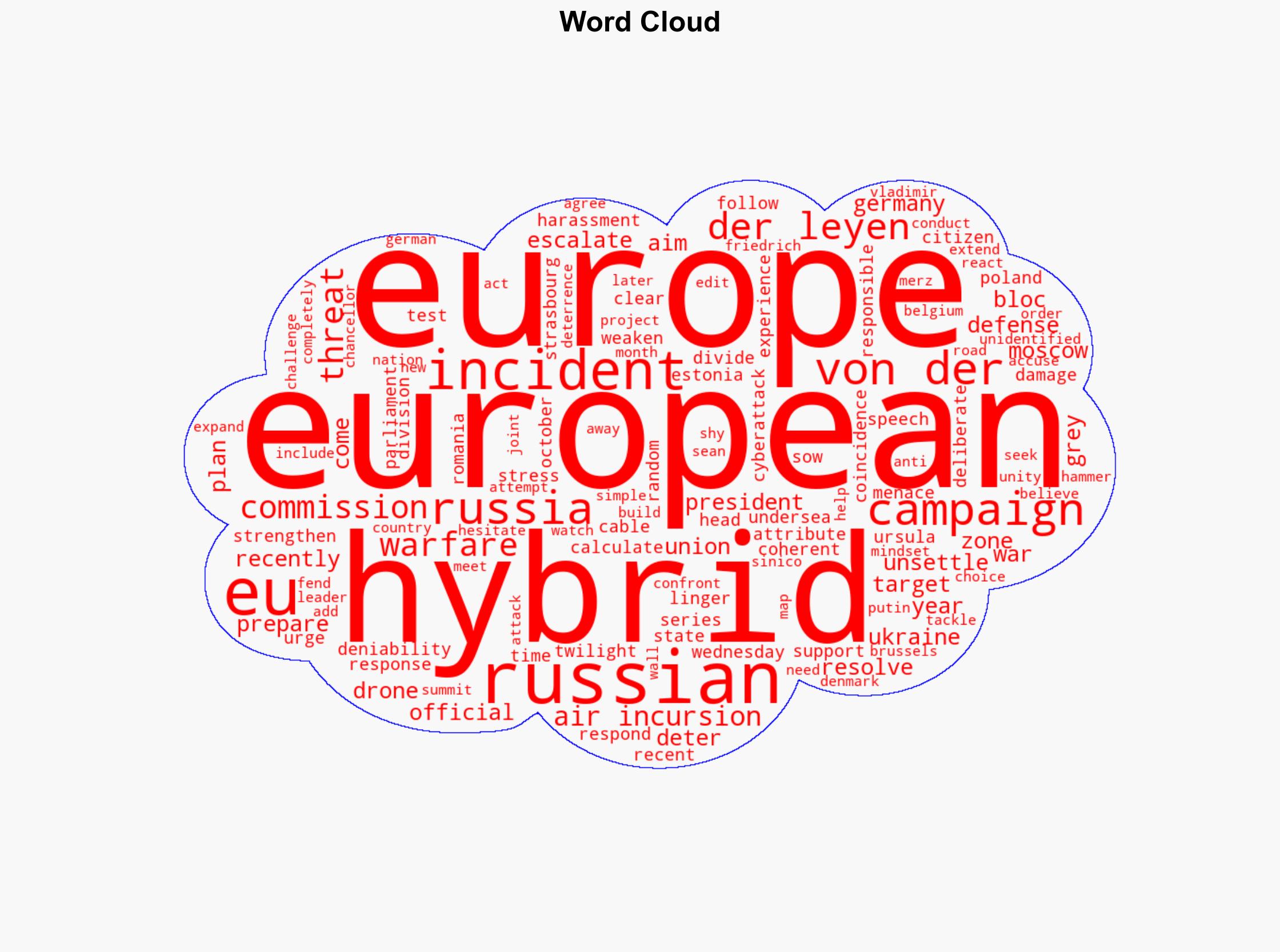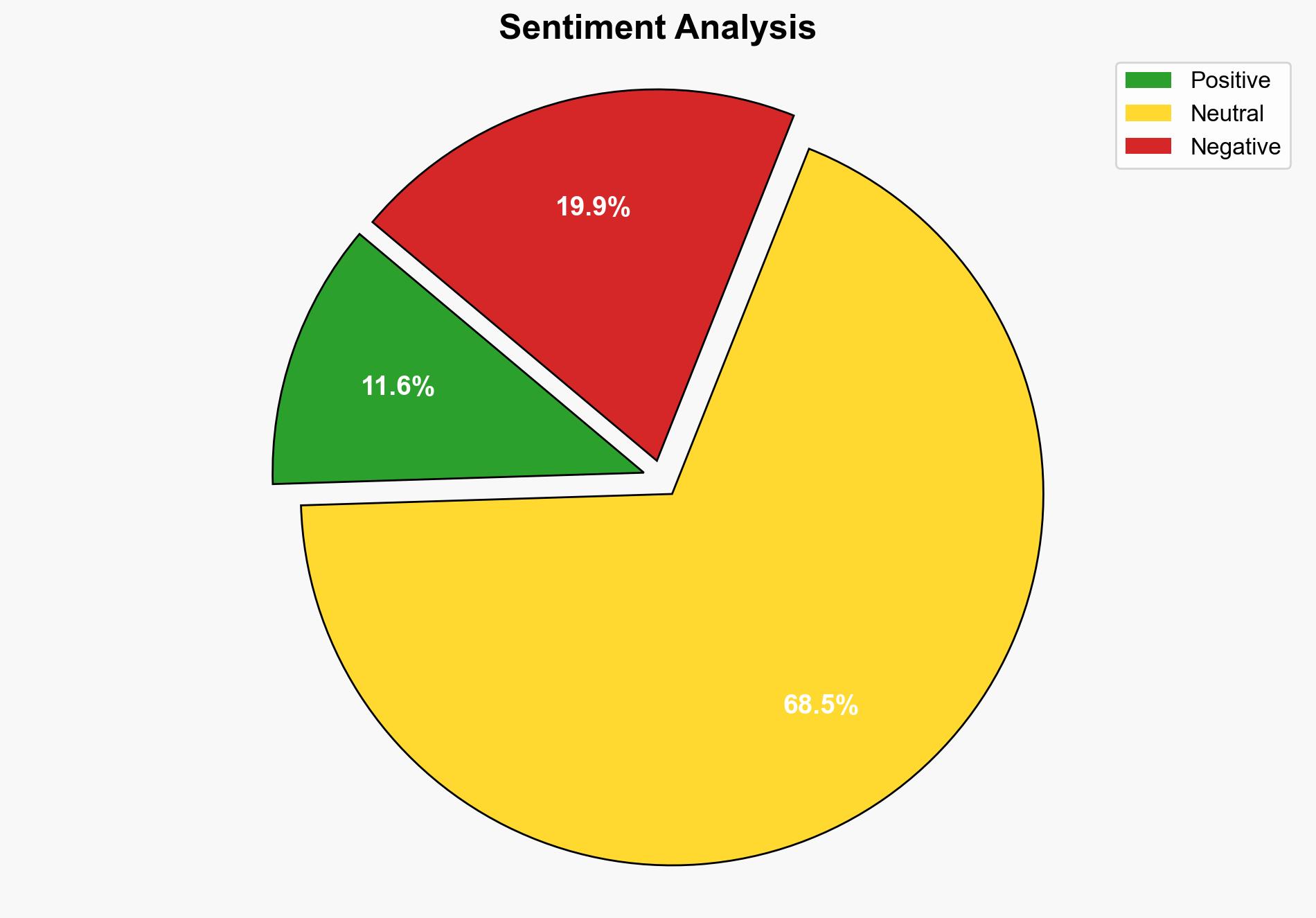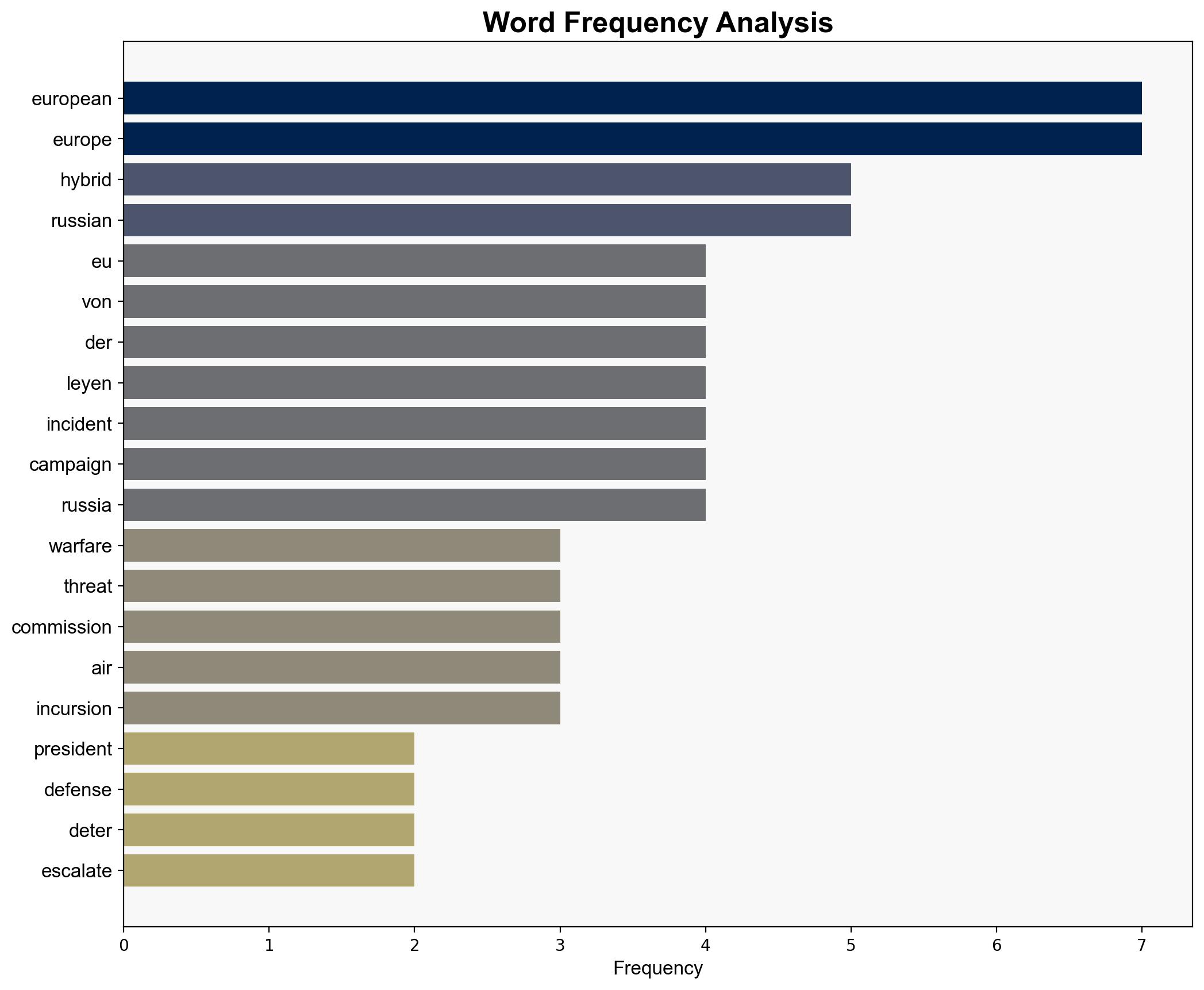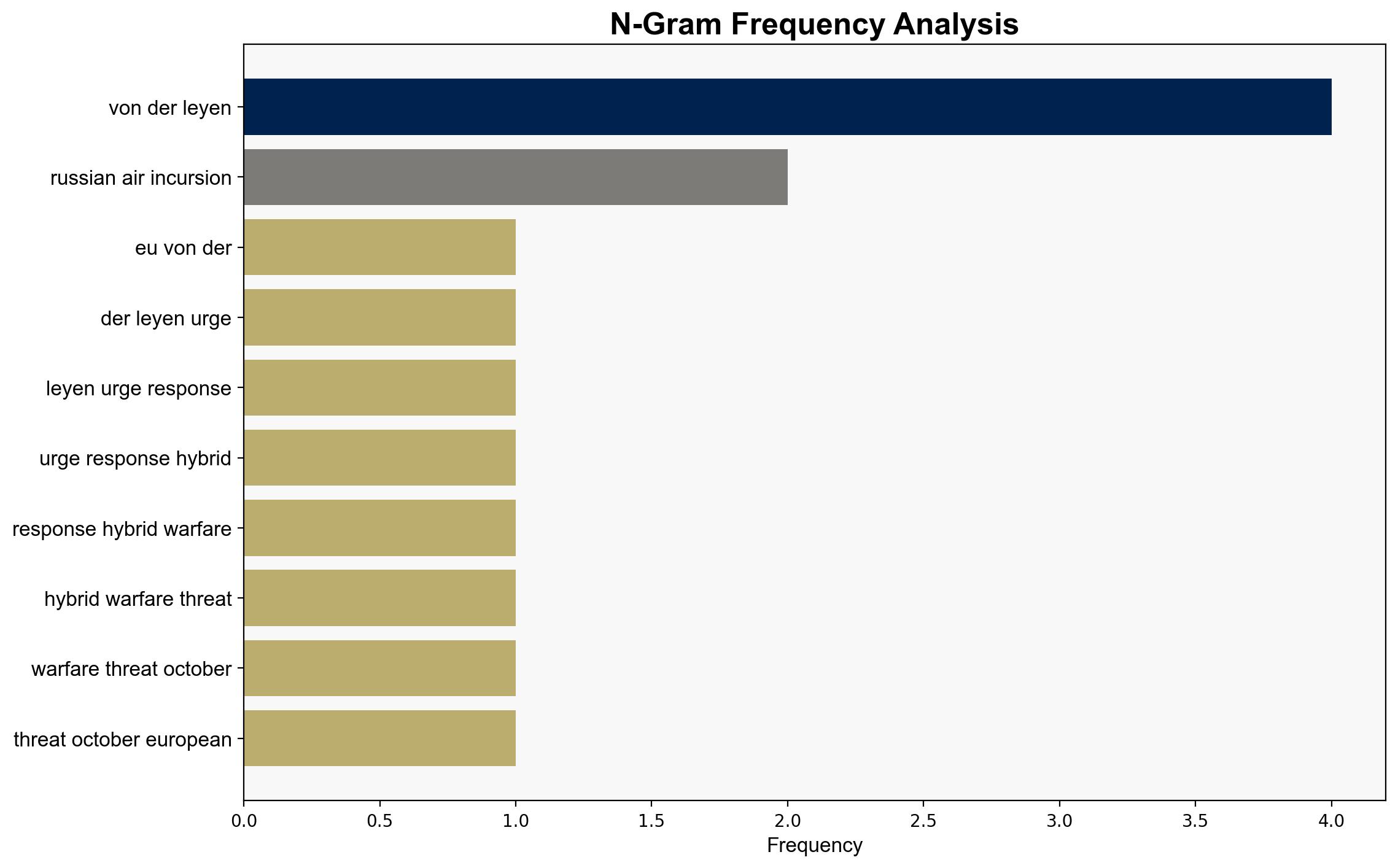EU’s von der Leyen urges response to hybrid warfare threats – DW (English)
Published on: 2025-10-08
Intelligence Report: EU’s von der Leyen urges response to hybrid warfare threats – DW (English)
1. BLUF (Bottom Line Up Front)
The European Union, under the leadership of Ursula von der Leyen, is urged to enhance its defense mechanisms against hybrid warfare threats, particularly from Russia. The most supported hypothesis is that Russia is deliberately engaging in hybrid warfare to destabilize the EU. Confidence level: Moderate. Recommended action includes strengthening EU defense collaboration and enhancing cyber and physical infrastructure resilience.
2. Competing Hypotheses
1. **Hypothesis A**: Russia is deliberately engaging in hybrid warfare against the EU to sow division and weaken support for Ukraine. This includes air incursions, cyberattacks, and undersea cable sabotage.
2. **Hypothesis B**: The incidents are not part of a coordinated Russian campaign but are isolated events or actions by non-state actors, potentially misattributed to Russia.
Using the Analysis of Competing Hypotheses (ACH) 2.0, Hypothesis A is better supported due to the pattern of incidents aligning with known Russian tactics and the strategic objectives of undermining EU unity.
3. Key Assumptions and Red Flags
– **Assumptions**:
– Hypothesis A assumes a high level of coordination and intent from Russia.
– Hypothesis B assumes a lack of coordination and potentially overestimates the role of non-state actors.
– **Red Flags**:
– Lack of direct evidence linking specific incidents to Russian state actors.
– Potential confirmation bias in attributing all incidents to Russia without considering alternative explanations.
– **Blind Spots**:
– Insufficient intelligence on the motivations and capabilities of non-state actors.
– Limited visibility into internal Russian decision-making processes.
4. Implications and Strategic Risks
– **Patterns**: Consistent with Russia’s historical use of hybrid tactics.
– **Cascading Threats**: Potential for escalation into more overt military confrontations.
– **Economic Risks**: Disruption of critical infrastructure could have significant economic impacts.
– **Cyber Risks**: Increased vulnerability to cyberattacks on EU infrastructure.
– **Geopolitical Risks**: Strain on EU unity and transatlantic relations.
– **Psychological Risks**: Erosion of public confidence in EU institutions and security.
5. Recommendations and Outlook
- Enhance EU-wide defense coordination and intelligence sharing.
- Invest in cybersecurity infrastructure and training.
- Engage in diplomatic efforts to de-escalate tensions with Russia.
- Scenario Projections:
- Best Case: Successful deterrence and de-escalation of hybrid threats.
- Worst Case: Escalation into direct military conflict.
- Most Likely: Continued hybrid threats with periodic escalations.
6. Key Individuals and Entities
– Ursula von der Leyen
– Vladimir Putin
– Friedrich Merz
7. Thematic Tags
national security threats, cybersecurity, counter-terrorism, regional focus





